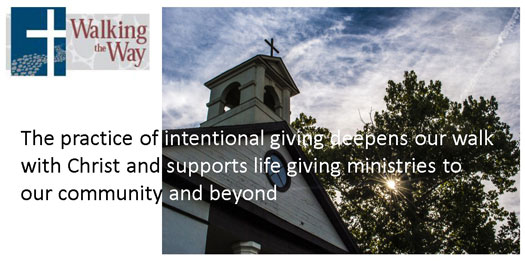Click here to view in a new window.
Stewardship
October is the month to plan your financial giving to the church for 2024

Toward the end of each year, the Vestry asks you to consider what you plan to give for the mission and ministry of St Peter’s in the coming year.
This year the process begins on Sunday, October 8, when Elizabeth Heimbach, Stewardship Chairperson and also our Senior Warden, gives you a letter from me, Catherine, which explains where your money goes and how the church uses it, and asking you to support this work in the coming year.
Included with this letter is a card on which you can list what you plan to give to St Peter’s in 2024. You may also pledge online this year. Your online pledge goes directly to Jim Heimbach, the St Peter’s Treasurer, as do the pledge cards that you fill out and turn in. Your financial commitment is something to consider prayerfully.
Options for your Estimate of Giving (Pledge)

1. Paper – return the card and envelope you received at church. If you were not there to pick up one, it will be mailed to you.
2. Online -NEW!
A. Letter and link to give
B. Link only to give
Your online pledge goes directly to Jim Heimbach, the St Peter’s Treasurer, as do the pledge cards that you fill out and turn in.
Stewardship Sunday – Making it Visual
Thanks to Jan Saylor for her artistic ability!
“Tens” Stewardship Commentary, Oct. 8, 2023
Click here to view in a new window.
Newsletter, October, 2023
Click here to view in a new window.
